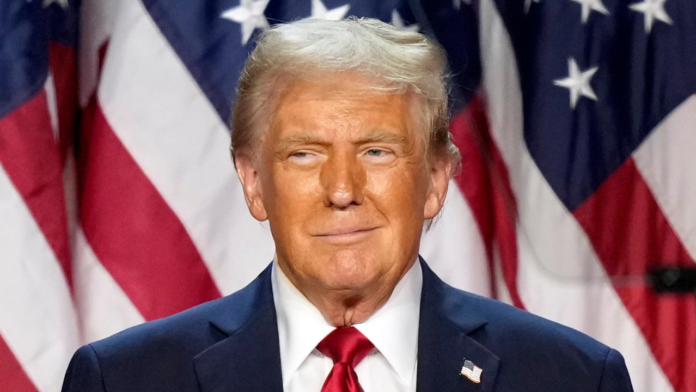The United States (U.S) Supreme Court is currently hearing arguments on President Donald Trump’s Executive Order concerning birthright citizenship.
Hundreds of Nigerians who have sought citizenship through that means could be affected.
The Court is expected to deliver its ruling by the end of June, though a quicker decision remains a possibility.
The Executive Order, which took effect upon Trump’s resumption in office in January, seeks to deny citizenship to children born on American soil to parents who are in the country unlawfully or on a temporary basis.
A crucial question underpinning this case is whether judges have the authority to issue nationwide injunctions that would effectively prevent Trump’s executive orders from being enacted.
The Trump administration, much like the Biden administration before it, has raised concerns over judicial overreach, arguing that such injunctions should apply solely to the parties involved in a given case rather than being applied universally.
This case is among several Trump administration legal battles before the highest court, many of which focus on immigration.
The justices are also reviewing emergency pleas from the administration seeking to terminate humanitarian parole for over half a million individuals from Cuba, Haiti, Nicaragua, and Venezuela, as well as revoke temporary legal protections for another 350,000 Venezuelans.
Executive order on birthright citizenship
Within hours of assuming office as the 47th President of the United States, Donald Trump signed a series of executive orders, one of which sparked intense debate and legal challenges.
The order directs government agencies to cease issuing citizenship documentation to babies born in the U.S to parents lacking legal status.
Immigration advocacy groups swiftly took legal action, with a wave of lawsuits in response to the contentious measure.
The 14th Amendment
The 14th Amendment, ratified on July 9, 1868 following the civil war, was a landmark provision extending the liberties enshrined in the Bill of Rights to formerly enslaved individuals.
It guarantees citizenship to “all persons born or naturalised in the United States,” a clause historically interpreted as conferring automatic citizenship upon nearly all children born on American soil.
Over the years, this broad interpretation has seen many foreign nationals, including Nigerians with sufficient means, choosing to give birth in the U.S. to secure American citizenship for their children.
The Executive Order
Trump’s directive, however, introduced significant restrictions:
Government agencies will no longer issue passports, citizenship certificates, or related documents to children born in the U.S whose mothers entered or remained in the country illegally or were on temporary visas.
Children whose fathers are neither U.S citizens nor legal permanent residents will also be excluded from automatic citizenship.
Under the new framework, for a child born in the U.S to qualify as an American citizen, at least one parent must be either a citizen or a green card holder, which is permanent legal residency.
The move marks a dramatic shift in longstanding interpretations of the 14th Amendment, with legal experts predicting an extended courtroom battle over its implications.
BusinessDay



